- Home
- Geoff Wolak
Wilco- Lone Wolf 7 Page 10
Wilco- Lone Wolf 7 Read online
Page 10
They debated the pros and cons, back and forth.
After twenty minutes, I said, ‘So, what equipment do you take, what does the average man take?’
Liban said, ‘As now, light kit, webbing, bandolier, rifle and pistol, poncho and those flysheets you showed me. We don’t need rubber mats in the jungle, or sleeping bags at night. We move fast and light.’
‘You have personal radios to use, but we will issue you with some compatible with ours. What about long range communications?’
‘Our smaller back-pack radios are good to ten miles.’
‘But can be detected, and listened in to. And down there many people speak French.’
‘So we go like you, satellite phone, less to carry,’ Liban agreed with a shrug. ‘But how many days on the battery?’
‘If you only switch it on when you want to use it - many weeks. If it is on all the time - four days or so. I switch on and check twice a day, leave it on if I am expecting intel.’
‘So, we do the same,’ Liban agreed.
‘Henri, get from Stores four large flysheets please.’ When he returned I opened one out, and they pulled the corners out.
‘It is good for ten men or more,’ Liban noted.
Rolled up, it was handed to a sergeant, the others issued to sergeants.
I fetched antibiotic soap bars and dished them out. ‘You wash groin and armpits, and feet, and it keeps down smell and infection. It also helps keep insects away. You all now have gloves and facemask, wear them when you sleep and rest. Down in Sierra Leone last week an SAS soldier was bitten and sent to hospital.
‘We keep shirts done up, sleeves down, gloves and masks on most of the time. It makes you warmer, but you don’t get bitten. And some of the things that can bite you down there will kill you.’
I handed out packets of puri-tabs. ‘These are our water purification tablets. You fill up your bottle from a stream, but with a cloth over the mouth, water soaking through, insects kept out, puri-tab in. Wait ten minutes before drinking, shake it as well.’
I handed every man a stretch yellow tourniquet. ‘We always have them in left shirt pocket, an inch sticking out – you do the same. If you are shot, you need it in a hurry.’
Fetching a fresh set of rifle spikes, but just ten available to them, I handed them out. ‘They fit to the fore end grip of the AKM, and you jam the spike into a fallen tree, stable rifle to hit a distant target.’
From a large brown sack I lifted green plastic leaves. ‘These will be issued when you get down there, put them on webbing. They don’t wilt away, no insects on them, good camouflage. And we have green cloth for the rifles, green paint we will take with us. When in the jungle we like to be invisible.
‘You have all practised our unit tactics, and yours are similar. Always a man with his oppo, shoulders rubbing, even when you take a shit. Team of four, next pair two steps away at most. Two teams of four make a patrol, teams are four steps away at least so that if one stands on a mine you don’t all get killed. Radio use kept to a minimum at all times.
‘It’s easy in the jungle to make a mistake about fire positions. Always find something solid, a dirt mound or a tree, always look over your shoulder and consider how you might withdraw. And remember, bushes don’t stop bullets. The gunmen will spray the area, rounds coming in at an angle.
‘Just because you cannot see the enemy does not mean that you won’t get hit. Always a solid fire position, but our men do like to climb trees and shoot down. The gunmen never suspect us being up a tree.
‘One of the biggest problems with a jungle patrol of say thirty men ... is that the back end is a long way off the front end. If there is shooting, then you must never fire unless you see the black face, you may hit men at the front. You wait to be called forwards, don’t rush forwards in a panic, you go to ground and wait the signal, checking the rear.
‘And if the men at the front are taking fire, you can’t see the action, but you’re just fifty yards away, rounds coming through the bushes to kill you, RPG flying in. In the jungle, not seeing the action is a problem – because you will feel the action when stray rounds come at you from nowhere.
‘We normally fire single shot, well aimed, we don’t fire on automatic unless the circumstances dictate. So rifles always set to single shot, magazines to have less than twenty rounds, never full, and always walk with finger off trigger. If you trip over ... you don’t shoot your buddy in the leg.’
By 5pm they had a plan, they had their kit, and they now looked the part – they looked just like us.
At 7pm the first young officer arrived, in a kit-model sports car, a bed allocated on the upper level, the French below, and by 8.30pm all of the young officers were booked in, so I headed over to the barracks with Swifty.
‘Gather around, gentlemen,’ Sergeant Crab told them. ‘This is Captain Wilco.’ They stood by their beds, but casually, all in civilian clothes, a fair bit of Gingham seen, smart slacks and shoes. Most of these were lieutenants, two of them captains.
‘Gentlemen,’ I began. ‘Welcome to GL4, home to Echo Detachment SAS. Unfortunately I have to take my men off to war tonight, so your basic training will be handled by others, and next week you’ll join me down in Sierra Leone, landing right in the middle of a small war.’
‘There’s an insurgency going on?’ a man enquiry, bigger and tougher looking than the rest, some of whom looked like teenagers.
‘A rebel group has re-formed in Liberia,’ I told him. ‘A threat to the border. They’re involved in blood diamonds, drugs, arms dealing, rape and pillage, and much of the time they cross the border.’
‘That base you wiped out?’ he nudged.
I nodded. ‘It has a new landlord, trouble on his mind. And you, gentlemen, will patrol around an area swarming with gunmen – unless I do my job first and thin them out a bit.’
Another man asked, ‘And there’s old ordnance lying around?’
‘There is, as well as snakes and spiders, and rusted metal that will infect you. Wars, gentlemen, are never fought in nice places, always shit holes, so get used to it.
‘Right, from tomorrow you’ll be on basic and advanced weapons, a steep learning curve, lots of rounds expended, lots of weapons handled, and you will get to know the AK47 family – a damn sight more reliable that the pee-shooters the British Army uses.
‘You’ll study map reading and route planning, and how to make a plan to move a body of men, kit and supplies, a few tests and tricks to deal with. You’ll not be pushed physically, that’s down to you - and whether or not you can be bothered to keep fit.
‘But understand this: if you’re in a place like Sierra Leone and something goes wrong - rescue helicopter out of action, storm moving in - your fitness will get you back out, and you may need to go three days without sleep. Keep fit for your own sake, not because it’s expected of you.
‘Sergeant Crab here has been around since the dinosaurs, so you’re in good hands, and he’ll teach you some jungle tricks before you get out there. When you do get out there, the French special forces now below you will be on hand. You’ll also find an American officer, a Kiwi, and a former Russian soldier. I have quite and exotic mix in my team.’
‘You take men from all the services?’
‘If they’re good enough, and if they do well on my three-day test. Captain Moran, Paras, who you will meet, scored ninety two, unbeaten by any other officer.’
‘Captain Moran was my immediate superior for a while,’ a man put in. ‘Two tours of Northern Ireland.’
‘Who here fancies a go at special forces?’ I asked.
Six raised hands.
‘Any marathon runners?’
Four raised hands.
‘You’ll need to be fit, gentlemen, and to be able to think when tired. That we’ll test down in Sierra Leone, along with your nerve. You’ll need to walk a path that may have mines in it, that may have a gunman in the bushes.
‘You’re required to push the fear away and focus on the j
ob at hand, to see if you have any metal. Your grandfathers blew whistles and went over the top to an uncertain fate, you need to be able to do that as well.’
Stood in the posh clothes and nice shoes, they exchanged looks, wondering who would crap out, who would be brave.
‘Over to you, Sergeant.’
Crab nodded as I led Swifty out.
‘Posh bunch of fuckers,’ Swifty said outside. ‘They all had the same shirt shop to visit.’
‘Yep, blue-blooded little officers. Most are lieutenants with just a year or two in, two fresh captains. Fathers were all in, mostly staff officers, so we have to try not to get any of them killed.’
Our green RAF buses turned up at 9pm, five of them, police escort waiting at the gate, curious faces peering out of the windows of the barracks as we loaded crates and kit, as we loaded men, and I finally gave the lead driver the nudge.
Flashing blue lights cut a swathe for us as we made good time to Brize Norton, two commercial 737s sat waiting, the teams split up – just in case.
Sat in a seat normally used by a tourist, I said, ‘I still don’t like commercial aircraft.’
Swifty turned his head. ‘Rather a Hercules and a chute to hand?’
‘Yep.’
‘Yeah, me too.’
Levelling off at altitude, I told everyone to get some sleep, and I settled down myself, my eyes soon closed.
I woke with a stiff neck as we crested over the top of a tropical storm, the plane shaken around. And unnerving me. I turned to Swifty. ‘God is doing it deliberately, because he knows I don’t like planes right now.’
‘If there is a god, he’s had your back for a long time.’
When the weather settled, the trolley-dollies issued water or tea, snacks, and we did not have to pay for them – which was good considering that most men had no money on them.
I glanced out the window at Freetown as we descended, orange street lights seen, much of the detail seen of a dead quiet city as we came in over the estuary, a smooth enough landing. Door open, the heat hit us, 30degrees at 3am, and down the steps we were met by the colonel in charge of the British forces here – up very early to meet us.
‘Welcome back, Captain.’
‘Thank you, sir, all nice and quiet I hope.’ We fell into step towards the terminal building.
‘Your lot shot a bunch of men the other week, and some here feel they went … looking for trouble.’
‘They may well have done, sir, and if you have an opinion on the matter then please go ahead and express it to Colonel Rawlson in Hereford.’
‘I passed my views up the line. We have a good working relationship with the population now, would like to keep it that way.’
‘Unfortunately, sir, there’s a large rebel group forming just over the border.’
‘I heard, yes. You’ll go after them?’
‘We’ll go have a look first, and if they’re sat around cooking and sleeping we’ll leave them alone. But if it looks like they’re gearing up to come here we’ll have at them, since I’m sure that you don’t want your men in the firing line.’
‘Hell, no.’
As we walked, I had to wonder what he was here for, other than a suntan. We waited in the terminal building for our kit to be brought in, a little arguing about that since they wanted to put it on trucks. I had to insist.
Crates opened, bandoliers on, pistols tucked away, webbing on, rifles clanking as they were loaded, we attracted worried looks from British officers and local officials alike. And a line of passengers about to go somewhere on an early flight could see us through a glass wall. With the French kitted out they looked just like us, fifty men now stood ready for war.
‘Chinook available, sir? We did request one.’
‘There is one tasked to assist, but it’s a short drive, a few hours.’
‘We have some very specific threats again us, sir, so we’re being cautious.’
‘I’ll try and sort it now,’ he unhappily offered before stepping away.
‘What’s his problem?’ Dicky asked, Mouri listening in.
‘He wants a quiet life, but we came here to practise shooting people.’
‘He just here to play golf, Skipper?’ Mouri asked.
‘Doubt there’s a golf course in this shit tip.’
‘Yeah there is, saw it as we came in.’
I shook my head. ‘So some of these fuckers play golf whilst the population starve.’
‘What do they care,’ Dicky scoffed. ‘And how many of them ever leave the capital?’
I turned to Travis. ‘Get any phone numbers off the trolley-dollies?’
‘I’ve got a steady bird now, Boss.’
Dicky put in, ‘You mean ... one that lasted more than a week?’
‘Be married soon,’ Mouri told Travis.
‘Boss has a steady bird,’ Travis countered with.
‘You do?’ Dicky asked me.
‘Nurse, quality bird,’ I told him.
‘A step down from a doctor, ain’t it?’ Dicky cheekily noted.
‘I’ve had enough of doctors for a while.’ I focused on one of the Salties stood near Dicky. ‘You ever see Elkin?’
‘He’s back in his old troop, doing the time, but he’s thinking of bodyguard work.’
Dicky spat out, ‘Never see me guard some Arab cunt.’
I told him, ‘One year, forty grand tax free, take it easy after that.’
He made a face and shrugged, rubbing a hand over his bald scalp.
Mouri asked, ‘We baby-sitting next week, Skipper?’
‘Yes, twenty-five young officers with potential, all of whom have a father who’s a general, so look after them. Any of that lot hurt and we’re in serious trouble.’
Two Chinooks finally touched down, not one, a short hop from the French base on the other side of the airfield, still a small contingent of French soldiers based here. I led Echo out first, all of us - plus a French platoon, boarding on Chinook.
I went forwards and grabbed the spare headsets, the sparkling instrumentation always fascinating me. ‘Hey guys.’
Helmets turned. ‘Wilco! Here to cause some trouble?’
‘Got a scrap booked in, that base in Liberia. What do you know, and what you been told?’
We started to roll forwards. ‘Been quiet enough, but we hear of bad boys around, and we see them sometimes, in their jeeps.’ We lifted off. ‘We’re available to you on request, but the colonel here is a bit of a prick.’
‘I met him, and yes – a difficult man.’
‘SAS got some shit for shooting up a jeep full of men,’ the co-pilot noted. ‘Never got the full story of it.’
‘Were you here with me last year?’
‘We were, but the crew following us was not here then.’
‘We may hit that base again, so have a look at the map.’
‘Easy to find where it is,’ the pilot said as we left the city lights behind.
‘Next week, shine your shoes, got a batch of new young officers down here, all sons of generals.’
They exchanged looks.
‘They being groomed for the top?’
‘They sure are.’
I moved to the back and tapped the loadmaster on the arm, the man familiar. ‘Angola?’
He nodded and smiled, hard to talk without headsets, and barely twenty minutes later we bumped down. Running off, I could see the same pearl-string of lights, men and officers stepping out to us – a surprise that they were awake.
Kneeling, I turned and observed the men disembarking - whilst being blasted by av-gas scented wind, the Chinooks loudly pulling away, their bright lights on.
It grew quiet as I turned to the reception committee, now just tree frogs sounding out. ‘I’m Captain Wilco.’
‘Your old room is available,’ a captain told me as Whisky appeared. ‘We occupy four rooms downstairs, got a canteen going, stores stacked up, men on the roof always, but there’s been no trouble for months. Oh, rubber mats just inside the do
or, a few camp beds available.’
‘Our extra kit is on its way, on the trucks,’ I told him. I turned to face the troops. ‘Listen up. Find some rooms, use the rubber mats here, get some food on, then some sleep. Move out.’ I faced Whisky. ‘All quiet around here?’
‘No tracks, no local gunmen, the odd villager hunting west of here.’
‘We’ll chat tomorrow, I mean – later today.’ I led my team inside, rubber mats grabbed from a tall pile, and back up to our old room, finding it pretty much as we left it, but looking like it had been recently swept out. Light from the corridor allowed us to study our new happy home.
‘They ain’t fucking decorated our room,’ Swifty mock-complained.
‘Is there room service these days?’ Mahoney asked.
‘There’re fewer people shooting at us, so be happy,’ I told them, webbing and bandolier off, rubber mat down, Swifty sat cross-legged and starting the brew; it was his turn. I stepped out onto the roof to find two dark outlines behind a GPMG.
‘Who’re you lot?’ I asked.
‘Welsh Guards, sir. About sixty of us down yer, at the airport like.’
‘All quiet out there?’
‘No one shooting at us, sir, thankfully.’
‘You were here last week?’
‘Been yer three weeks, sir.’
‘How did the SAS behave themselves last week?’
‘Well, they was boasting about shooting up a jeep like, the CO downstairs not so happy, but they said the men were gunmen and armed.’
I took in the dark tree line. ‘Most people in the world hold down a day job they don’t like and they stick to the law, and some pick up an AK47 and rape and pillage, do drugs and drink, deal in guns and blood diamonds. And around here there’s no law, we’re the law, so don’t feel sorry for those gunmen, four less scumbags in the world.’
‘We wuz up in that village, sir, where the massacre was, still skeletons and the like there. We had a few days survival training, Sergeant Whisky, and he showed us bodies – and how to tell old they wuz, and how they died. Was lots of kids killed up there.’

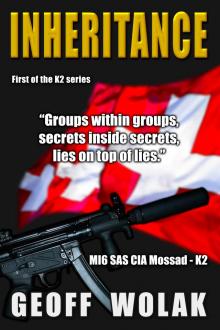 K2 book 1
K2 book 1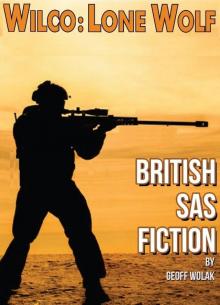 Wilco- Lone Wolf 22
Wilco- Lone Wolf 22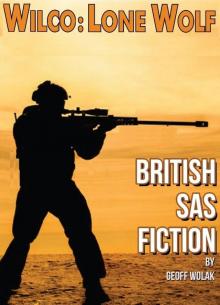 Wilco- Lone Wolf 20
Wilco- Lone Wolf 20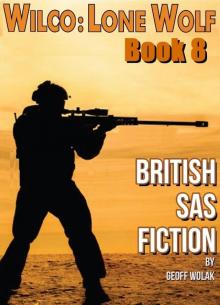 Wilco- Lone Wolf 8
Wilco- Lone Wolf 8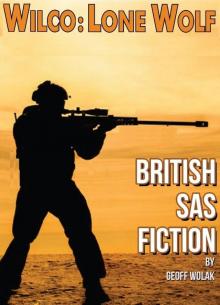 Wilco- Lone Wolf 17
Wilco- Lone Wolf 17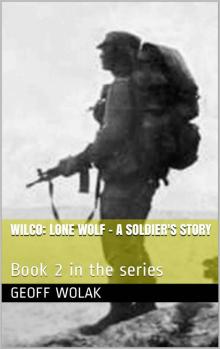 Wilco- Lone Wolf 2
Wilco- Lone Wolf 2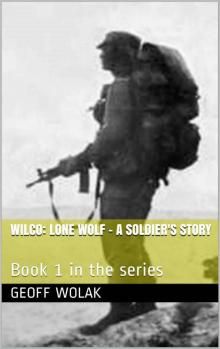 Wilco- Lone Wolf 1
Wilco- Lone Wolf 1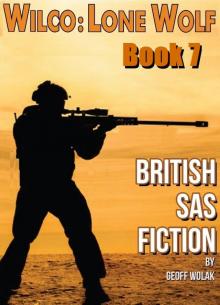 Wilco- Lone Wolf 7
Wilco- Lone Wolf 7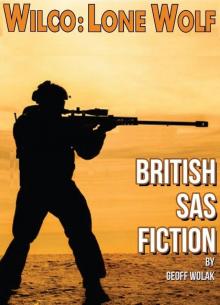 Wilco- Lone Wolf 15
Wilco- Lone Wolf 15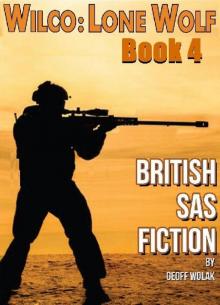 Wilco- Lone Wolf - Book 4
Wilco- Lone Wolf - Book 4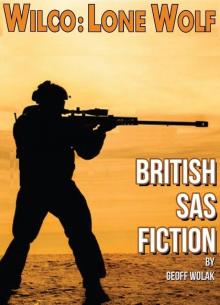 Wilco- Lone Wolf 21
Wilco- Lone Wolf 21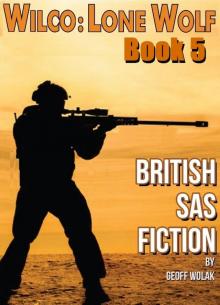 Wilco- Lone Wolf 5
Wilco- Lone Wolf 5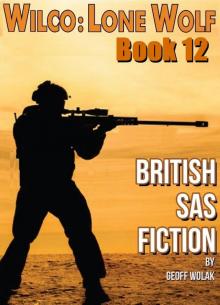 Wilco- Lone Wolf 12
Wilco- Lone Wolf 12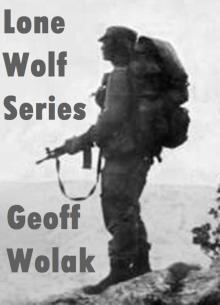 Wilco- Lone Wolf 10
Wilco- Lone Wolf 10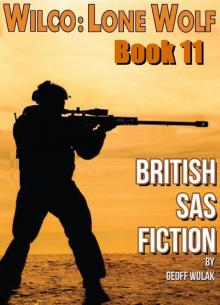 Wilco- Lone Wolf 11
Wilco- Lone Wolf 11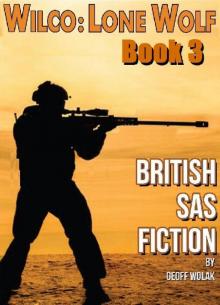 Wilco- Lone Wolf - Book 3
Wilco- Lone Wolf - Book 3 Magestic 3
Magestic 3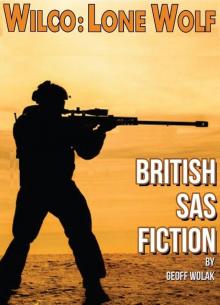 Wilco- Lone Wolf 19
Wilco- Lone Wolf 19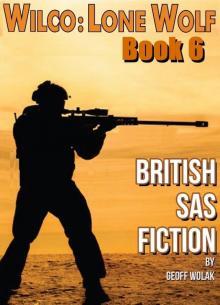 Wilco- Lone Wolf 6
Wilco- Lone Wolf 6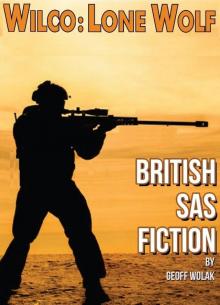 Wilco- Lone Wolf 16
Wilco- Lone Wolf 16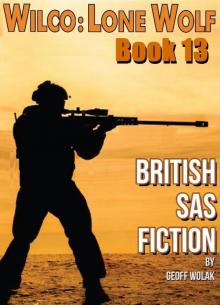 Wilco- Lone Wolf 13
Wilco- Lone Wolf 13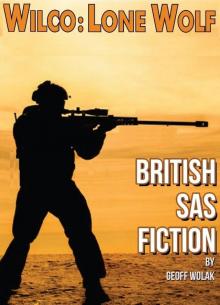 Wilco- Lone Wolf 18
Wilco- Lone Wolf 18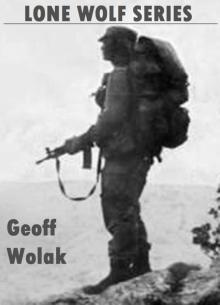 Wilco- Lone Wolf 9
Wilco- Lone Wolf 9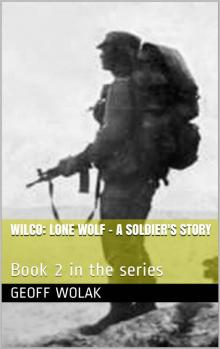 Wilco: Lone Wolf - Book 2: Book 2 in the series (Book 2 of 10)
Wilco: Lone Wolf - Book 2: Book 2 in the series (Book 2 of 10)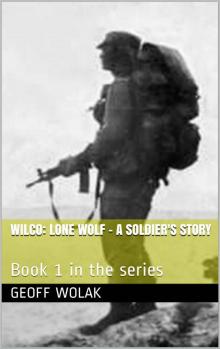 Wilco: Lone Wolf - book 1: Book 1 in the series (Part of an ongoing series)
Wilco: Lone Wolf - book 1: Book 1 in the series (Part of an ongoing series)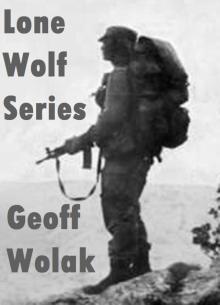 Wilco: Lone Wolf, Book 10: Book 10 in the series
Wilco: Lone Wolf, Book 10: Book 10 in the series